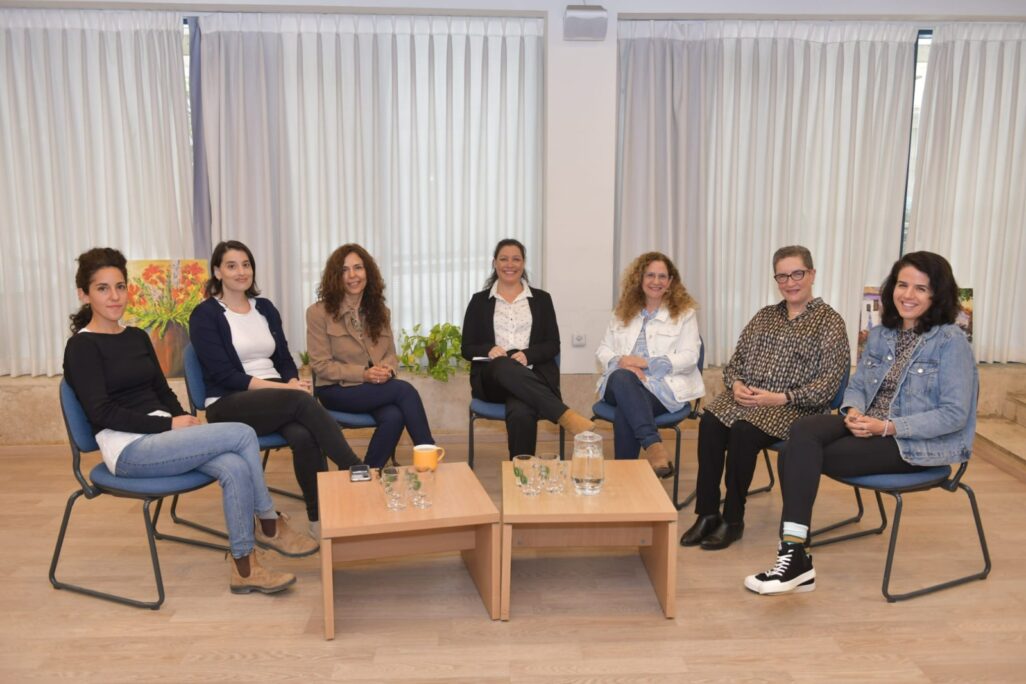
“When I started working at the Ministry of Agriculture, 32 years ago, I was the first and only female inspector in the Quarantine Division of Plant Protection,” says Shlomit Zioni, director of plant protection and audit services at the Ministry of Agriculture. Now in a senior position as the head of Israeli flora, Zioni recognizes how far Israeli society has come in terms of women’s place in the workplace and how far Israeli society still has to go.
International Women's Day, which was celebrated last month, has taken on a commercial tone over the years and is celebrated more than anywhere else at florists and perfume shops. For working women around the world, though, it is still a day of struggle.
The day serves to remind us of the need to challenge the structures of the work world, which have been designed without women in mind. It allows us to observe how gender gaps have changed throughout time, and to examine as a society what has gotten better with time and what still needs improvement. Looking at the experiences of female Ministry of Agriculture workers from different generations offers a complex picture of the long road that has been traveled so far and the road that women still have to pave.
“I announced that I will no longer take minutes for meetings”
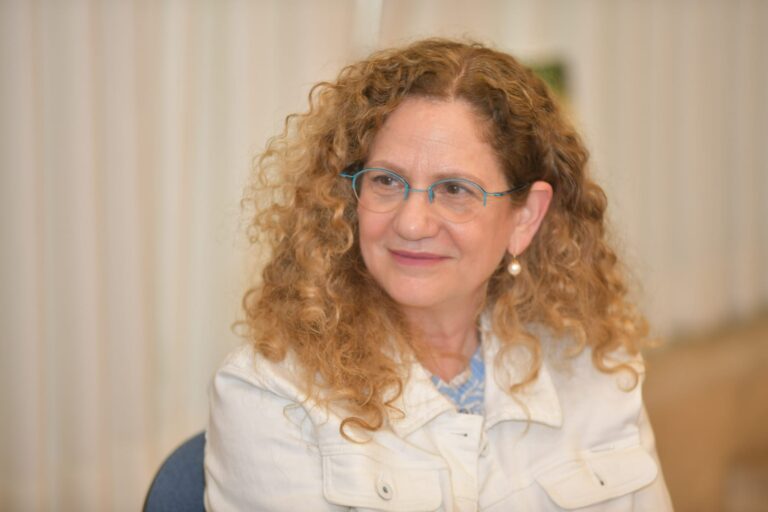
Zioni, 58 years old, a mother of two daughters, is a veteran employee of the Ministry of Agriculture who started her career as a junior supervisor in the organization and continued to develop her career there. Her personal experience has taught her the need to reduce the gap in opportunities and working conditions faced by women in the workplace.
“About a month after I started working,” she recalls, “one of the colleagues asked the manager of the unit why he had hired me. ‘She is newly married and will soon want children.’ The colleague described the familiar path, adding, ‘She will get pregnant and go on maternity leave, and go. There will be a lack of workers.’ Without getting confused, the manager put him in his place and said: 'I don't understand what the question is. Hopefully, she will go on maternity leave and come back, and everything will be fine. What, you don’t go to [military reserve service] once a year or more?’”
“On another occasion,” says Zioni, “I asked the manager of a different division why they don’t have any women. His answer was, ‘It’s a very hard job. It’s not suitable for women.’”
Zioni reports that today, about half of the organization’s employees are women, and the percentage of women in leadership has greatly improved as well.
“In the past, when I would enter the meeting room, I was the only woman. For a very long time it was even taken for granted that I was the one writing the minutes, until I expressed my displeasure and announced that I would no longer take minutes,” Zioni says.
Despite the improvement, Zioni says that the gender gap is still very noticeable in certain forums, such as among the representatives of the various sectors, the regional councils, and the agricultural organizations. “There you can still see that the male side is very strong and dominant. When representatives come to the discussions, the room is full of men and there are not many women. Among the female and male employees of the office, there has been a very big change in terms of [equality in] salary and promotion.”
Dr. Ruti From-Arica, director of the planning authority at the Ministry of Agriculture, is also intimately familiar with working one’s way up as a woman despite the difficulty. From-Arica, 64, has been working at the planning authority in the ministry for 19 and a half years, six of them as the director. She received her education in the field of engineering, public administration and law at the Technion – Israel Institute of Technology, Harvard, and Bar-Ilan University.
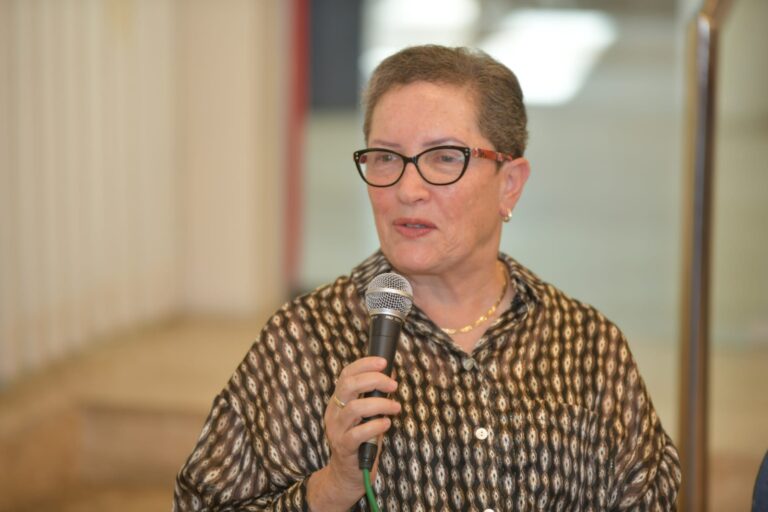
“Engineering has always interested me. When I studied at the Technion, there were very few women in the civil engineering faculty, but I was not alone," From-Arica says. “There were women, and as I progressed in my career in the field of engineering I found them. We were never the majority.”
From-Arica came to the Ministry of Agriculture after 15 years of service as an engineer for the Beit Shean Regional Council in northern Israel.
“When I started, I was a young engineer, a mother of small children, so they always made sure there was a male engineer to supervise my work. To their credit, they let go of that very quickly,” she adds.
She became acutely aware of the fact that she was a woman in a man’s world when she was seven months pregnant. “I went up to inspect an iron construction. I remember climbing ladders with a big belly and all the workers around were looking: ‘What is she doing up there?’ Then, much to their shock, I told them to dismantle the construction. Unfortunately, this feeling continues to accompany me to this day, when I enter a conference room full of men.”
“The Zionist revolution was built by women, especially in agriculture”
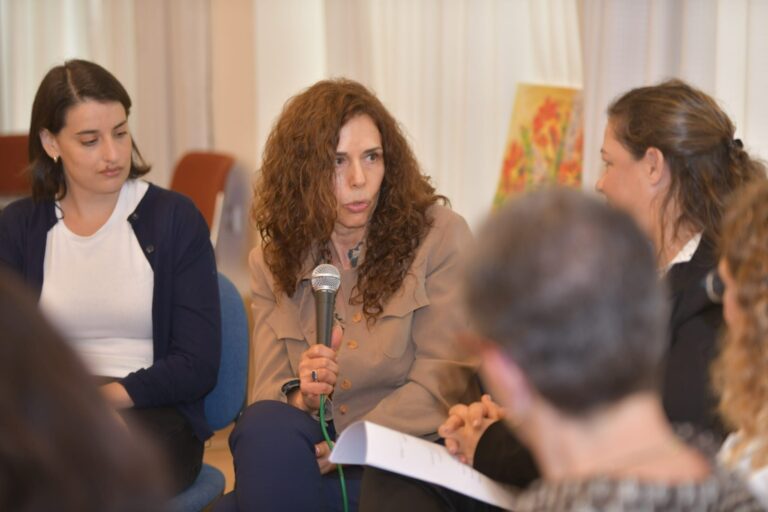
Tzipi Friedkin, director of market research in the strategy division, and responsible for the environment and sustainable development administration, started her career at the Ministry of Agriculture 27 years ago. “I was a local advisor in Shaham, the Advisory and Professional Service of the Ministry of Agriculture,” she says. “There is a male stereotype in agriculture because the managers of the agricultural organizations, marketing companies, and so on, are men. But over the years I have encountered a lot of women in a variety of positions, and I am happy to say that gradually women are also integrated into organizations that make decisions and this is a welcome change. The Zionist revolution was built quite a bit on women, especially in agriculture, with full equality of rights.”
Friedkin, 55, holds a bachelor’s and master’s degree in agriculture from Hebrew University and is the mother of two daughters. “Over the years, with increasing industrialization and professionalization, there are already examples in the field of professional women who have been accepted. We don’t need to continue to prove ourselves when we are already there.”
She recognizes the changes that have taken place regarding the opportunities available to women. “In the past, we were expected to write minutes for the meetings, no matter what position we were in the room. Our promotions were delayed and we were given positions that the men with our experience and seniority did many years before us, after they had already progressed in their careers. Today, we, too, are offered advanced positions upon entry.”
“I talk about this with my daughters,” Freidkin says. “Things that didn’t exist when I was their age can be taken for granted today, and that’s a huge improvement.”
“It’s our duty to pay attention and to give young women the opportunities to advance”
Zioni, From-Arica, and Friedkin all felt the costs of being a working mother. “The first years of motherhood were very difficult for me,” Friedkin says. “Sometimes it was an impossible move. My husband works a lot abroad, so I functioned alone when the girls were small. Of course, work and getting ahead were put on hold.”
Zioni, too, remembers how difficult it was raising children with her husband often working away from home. “It so happened that I created a social network with my friends and neighbors,” she says. “It helped a lot when the children were sick, or when I was suddenly late to pick up the children in the afternoon because of traffic. This sharing of the duty of care became something very essential in the upbringing of my daughters and the children of my neighbors. By the way, the ‘second shift’ or the ‘second career’ does not end when the children leave the house. My daughters are already grown, but there is still a commitment that weighs on me.”
All three point out that changes still need to be made in the work world in order to achieve true equality. And they all understand themselves as responsible for taking on that work.
“We have a decisive role in empowering our female colleagues and workers, harnessing them to the field,” Zioni says. “There is an improvement in the flexibility that the public sector allows for working mothers. Our commitment is the same as that of the men, but we have to take into account the entire picture and compare the conditions. I am very sensitive to the facts here, on the issue of the overtime quota and other benefits. I’m really checking how each department manager distributes them, so that no one is disadvantaged.”
Friedkin describes how her former manager’s support inspired to understand the importance of the role. “As a working mother with young daughters, I was lucky that my manager was attentive,” she says. “He gave me this grace period which is very important for advancing women. Still, it depended on luck and a certain amount of grace. I’ve worked with managers in the past who weren’t like that, so today I know how to appreciate it. The manager’s ability to accommodate mothers is critical.”
“On face value,” From-Arica says, “the gender differences did not interest me, but I became disillusioned and I can see that there are still many, many women who are not in this world. Those who have already reached senior positions must remember that this phenomenon exists and not ignore it, even though today I do not feel it personally.”
“Thanks to the women who paved the way for us”
The women workers of the next generation stand on the shoulders of veterans and the senior management of the ministry. They are young and full of motivation and a sense of purpose. They recognize and cherish the changes brought about by their predecessors, but are very sober regarding the role gender still plays in the work world.
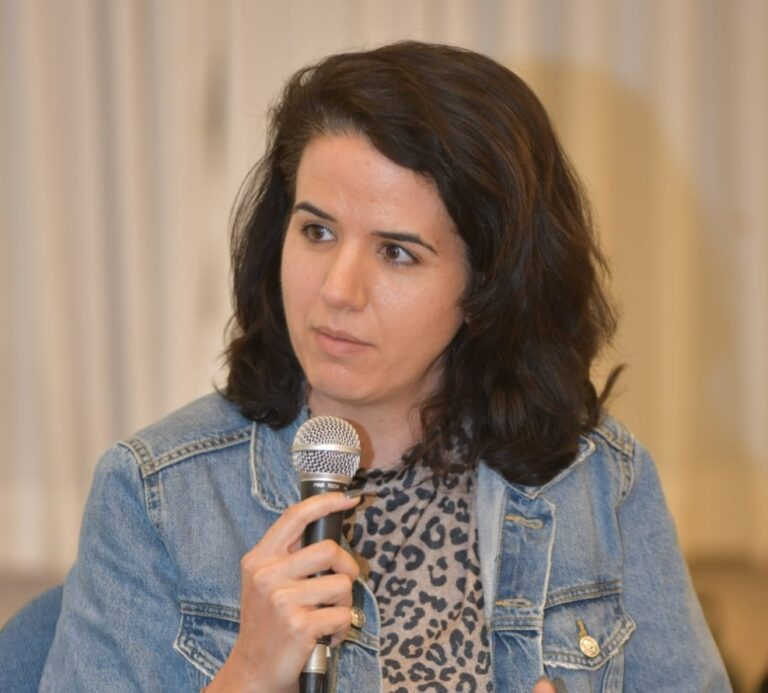
“I am a moshavnik [from an Israeli agricultural cooperative community] and my parents are farmers to this day,” says Yael Budnik Bar, an economist and manager of the fruit division in the training service at the Ministry of Agriculture. She is 33 years old, and the mother of two children. She has been working for the Ministry of Agriculture for six years and this is her third position in the ministry.
“As a girl I picked peaches and pressed grapes for export,” Budkin Bar says. “All around me the boys and girls worked, so there was never a question. Whether you were a girl or a boy, you would lift the heavy crate. But as we grew up, the gap between boys and girls in the agricultural sector was more and more affected by the different physical strength between average men and women. This has always created a built-in gap.”
Budkin Bar recognizes how improved technology has reduced the gender gaps in agriculture and has promoted women’s professional independence. “Agriculture is going to a place of very advanced mechanization,” she says. “You no longer have to lift heavy sacks of fruit when picking. There is another option.”
She sees the changes in agriculture as wide reaching. “Female farmers know that they can use hired work. Working in the family farm allows them to be home at noon to pick up the children, and still work and bring in a full-time income. Farming creates a growing advantage for women, despite the stigma and the initial tendency to associate the field with men. This is something that we, as female office workers, can’t really do today. Not to mention renting in the private market, which is also in such distress,” she says.
Like Budkin Bar, Shani Ishgur Greenberg, a field agricultural instructor, feels that women have an increasingly large role in the agricultural sector. “Although it is considered a male field, there is definitely a large place for women,” she says.
Ishgur Greenberg has been working as a plant protection instructor in southern Israel for the past year and a half. She is 35 years old, a graduate of an agricultural studies program, and a mother of three children. “We are a minority, and it is still felt. But it is also our strength, being women in this field. I do not feel that it is a negative barrier for me, and I attribute it to the women who paved the way for us,” she says.
“Sometimes they treat me like a girl coming to the adults’ table”
For Liran Flitman, policy coordinator in the animal welfare division of the Veterinary Services, the role of women in the field has changed drastically within her memory. Flitman, 36, is an animal welfare scientist and has a master’s degree in public policy. She has been working at the Ministry of Agriculture for four years.
“In recent years, the field of veterinary medicine, and animal welfare in particular, is very much identified with women. Eighty percent of the veterinary students are women. This is a very big change that has happened in the last decades and there is certainly such a trend in the office as well,” Flitman says. “My director, who is responsible for the animal cruelty law, is the first woman in the senior management of the veterinary services. At the same time, we are engaged in the field of animal welfare and there is sometimes the feeling that it is treated as an anecdote. As if we take care of animals because we are women. Sometimes it comes in its own little way, but I carry it as a badge of honor.”
Flitman does see the trend of change at the administrative level, but by virtue of her position she is exposed to gender gaps in the field. “Sometimes even in formal meetings where only theoretical policies are discussed, there is a different attitude related to gender and age,” she says. “Sometimes I am treated like a girl coming to the adults' table, even though it’s been a long time since I was a girl. It’s interesting to see that the treatment of men is generally similar at all levels, both in very official meetings and in the field.”
"If you blink, they eat you"
Budnik Bar describes the all-too-common experience of being the only woman in the room. “Many times I was the only woman leading the meeting in front of only men, and they are twenty or thirty years older than me,” she says. “You can’t blink. If you blink, they eat you. You have to attack, come with knowledge early and with professional support and do the preliminary work correctly so that you are not caught unprepared. Of course a man should do it too, but it may be that a man will feel more comfortable improvising if he is not fully prepared. The forums of the agricultural leadership are also very masculine. This is something that agriculture in Israel we will have to deal with quite soon. Either in terms of age or in terms of gender diversity. When the forum is so homogenous, sometimes you don't see the full picture.”
“Our margin for error is much narrower than men’s,” Flitman says. “We have one attempt to give 100% and you can not fail. I work in a woman-centric division run by a woman, in an organization with many more men. I have no doubt that as a woman I am more aware of the problems we have as employees in general, male and female. I was privileged to work with amazing women, so there is very comprehensive support and a sensitivity to employee needs. It is very helpful that someone else understands you and knows how to support you in this division. This is also the paradox, because in order to create an environment that’s more supportive of women, there needs to be more women.”
“The place of women to empower women is super necessary,” Budkin Bar says. “I have two children. I was pregnant twice in an office job. I find myself explaining to female employees in the ninth month that it is okay that they did not go out to train for nine hours with farmers in the field. An employee will go on leave after giving birth, she will enter a new life routine and together with her partner will share in the growth of the baby. It is important to me that they do not feel the need to apologize. If a woman wants to have children, she does not have the option of not being the one who is pregnant. They have not yet developed this algorithm. I am not sure that a man who is always in charge will see it. Even a man with a lot of attention and sensitivity who will notice the need, has not experienced pregnancy and does not know what it’s like. That is why the place of women to see women is critical. When you see a woman who wants to work, advance and influence, you need to know how to give her a hand up.”
“No matter what, I’m the cleaner of the house”
The younger female employees identify a somewhat greater level of equality with their spouses when it comes to raising children and domestic labor, but they acknowledge that work remains to be done.
“With me and in most of the community around me today, there is a lot of division in the burden of raising the children. I don’t drop the children off and pick them up every day. Many times I come home after the children go to bed. When I start a new role, my husband knows that I will be around less,” Budkin Bar says.
At the same time, she acknowledges that the aspects of parenthood that seem to fall to her by default, including the mental burden. “No matter what, I'm the janitor of the house,” she says. “Although I didn't go out to pick up the children yesterday, I bought a birthday present in advance that the children wanted. I reminded my husband that there was an after-school club and I arranged for him to take the other child to the club and to pick him up. The night before I also made hard-boiled eggs, so that they would have them for dinner the next day. Although I am not there all the time, the management of the house remains the mother’s, no matter how much there is a logical division and equality of the burden. It sits on my heart and suddenly jumps to mind in the middle of a working day. But there is an attempt by the male side to improve on this.”
Ishgur Greenberg is optimistic that things are improving in terms of division of domestic labor. “You can also praise the men in this section. As we progress and develop, they are also with us. They also benefit from accepting more of the family role. That’s where it’s heading. They are more in the family, they are more with the children than ever before, and we are more capable of leveraging our careers.”
This article was translated from Hebrew by Nancye Kochen.






